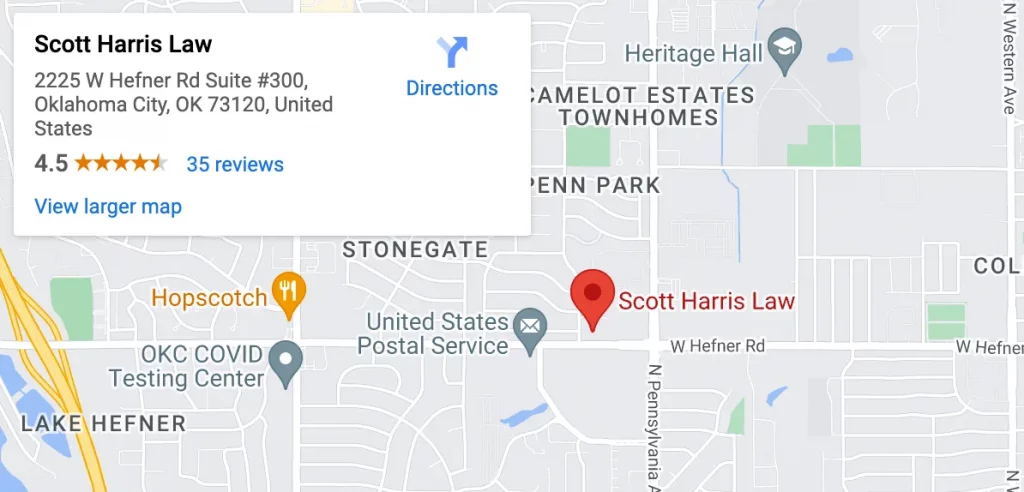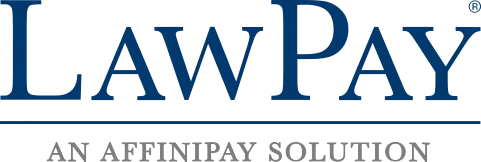What Debts Can Be Discharged in a Chapter 7 Bankruptcy in Oklahoma City, OK?
Understanding dischargeable debt in Chapter 7 bankruptcy can be a lifeline for those feeling crushed under the weight of financial obligations. If you’re in Oklahoma City, Oklahoma, it’s crucial to grasp the specifics of what debts can be eliminated through this legal process, allowing for a fresh financial start. This topic delves into the specifics of dischargeable debt in Chapter 7 bankruptcy in Oklahoma City, underlining the significance of professional guidance during this often-complex journey.
Scott Harris Law, PLLC, a bakruptcy law firm with a deep understanding of bankruptcy law, is committed to helping you navigate the complex aspects of Chapter 7 bankruptcy. Our team recognizes the importance of providing advice that is suited to your individual circumstances and is ready to examine the most effective action plan for your financial future. A free consultation can offer you valuable perspectives on your financial situation and possible strategies.
Don’t allow the weight of debt to continue overshadowing your life. Understanding what can be alleviated through Chapter 7 bankruptcy is a vital first step toward regaining control of your financial circumstances. Contact Scott Harris Law, PLLC today and embark on the path towards a secure financial future.
What are Dischargeable Debts?
Dischargeable debts, in the context of Chapter 7 bankruptcy, encompass a range of financial obligations that can be eliminated or “discharged,” freeing the debtor from the legal obligation to repay. The effect of a discharge is twofold: it releases the debtor from responsibility and prohibits the creditor from further attempts to recover the debt.
Chapter 7 bankruptcy’s primary objective is to offer a fresh financial beginning to individuals, achieved by liquidating non-exempt assets to repay a portion of debts. However, not every debt is eligible for discharge. Specific criteria laid out in the Bankruptcy Code delineate which debts can be discharged and which cannot.
What Types of Debts Can Be Discharged Under Chapter 7 Bankruptcy?
Here are some common types of debts that can often be discharged:
- Credit Card Debts and Personal Loans: Unsecured debts, such as outstanding credit card balances and personal loans, usually qualify for discharge under Chapter 7 bankruptcy. These types of debts do not involve collateral.
- Medical Bills and Hospital Expenses: Debts incurred due to medical treatments, hospital stays, and related healthcare expenses are often discharged through Chapter 7 bankruptcy. This can provide significant relief to individuals burdened with substantial medical debts.
- Utility Bills and Other Unsecured Debts: Unpaid utility bills, overdue rent, and various other unsecured debts (including payday loans and collection agency accounts) might qualify for discharge in a Chapter 7 bankruptcy, depending on the specific circumstances.
- Certain Types of Judgments: Civil judgments, including money judgments and court-ordered settlements, can sometimes be discharged through Chapter 7 bankruptcy. However, certain types of judgments, such as those related to fraud, intentional harm, or criminal restitution, may not be dischargeable.
It’s essential to note that there are exceptions and specific criteria for each debt category, and not all debts within these categories will be automatically discharged. For example, debts incurred through fraudulent activities, intentional misconduct, or debts that are non-dischargeable by law may not be eligible for discharge.
What are Nondischargeable Debts?
While many debts can be discharged in Chapter 7 bankruptcy, certain obligations are generally not dischargeable. It’s important to consult with a bankruptcy attorney to understand the specific rules and exceptions that apply in your jurisdiction. Here are some examples of debts that are typically non-dischargeable:
- Child Support and Alimony: Debts related to child support or spousal support obligations are not dischargeable. Chapter 7 bankruptcy does not provide relief from these ongoing financial responsibilities.
- Student Loans (with exceptions): In most cases, student loans are not dischargeable under Chapter 7 bankruptcy unless the debtor can demonstrate undue hardship, which is a challenging standard to meet.
- Certain Taxes and Penalties: Some tax debts, such as recent income taxes, payroll taxes, and tax fraud penalties, are generally not dischargeable in Chapter 7 bankruptcy. However, older income tax debts and certain other tax obligations may be eligible for discharge.
- Debts Arising from Fraud or Intentional Misconduct: Debts incurred through fraudulent activities, embezzlement, intentional harm, or personal injury caused by driving under the influence are typically not dischargeable in Chapter 7 bankruptcy.
- Court-Ordered Restitution: Restitution obligations resulting from criminal proceedings or court-ordered fines and penalties are usually non-dischargeable.
It’s important to consult with an experienced bankruptcy attorney to understand the specific laws and exceptions that apply to your debts. They can guide you through the process and help determine which debts may not be discharged in Chapter 7 bankruptcy in Oklahoma City, Oklahoma.
How Does the Filing Date Influence the Scope of Debts Covered by Chapter 7 Bankruptcy?
The date you file your Chapter 7 bankruptcy case is pivotal in determining the scope of debts that can be included and discharged in the bankruptcy process. The timing of your filing can affect the composition of your bankruptcy estate and the eligibility of specific debts for discharge. Here’s how:
- Automatic Stay: As soon as you file for Chapter 7 bankruptcy, an automatic stay comes into effect. This stay immediately ceases all collection efforts from creditors, encompassing lawsuits, wage garnishments, and foreclosure proceedings. Debts incurred prior to the filing date are typically included in the bankruptcy estate and might be dischargeable.
- Pre-petition Debts: Chapter 7 bankruptcy primarily focuses on pre-petition debts – those debts that existed before your bankruptcy filing. These debts are generally eligible for discharge, provided they meet the criteria as outlined in the Bankruptcy Code.
- Post-petition Debts: Generally, debts acquired post your Chapter 7 bankruptcy filing date aren’t included in the bankruptcy estate and aren’t automatically discharged. You are responsible for any debts incurred after the filing date. Nonetheless, exceptions may exist for specific types of post-petition debts, such as necessary expenses associated with the bankruptcy process or debts emerging from a divorce settlement.
- Dischargeable Debts: Eligibility for debt discharge in Chapter 7 bankruptcy is determined as of the filing date. Thus, if a debt was present before your bankruptcy filing, it may be discharged, given it satisfies the dischargeability criteria.
Consulting with a bankruptcy attorney like Scott Harris Law, PLLC, can help you understand your filing date’s implications on the debts covered by Chapter 7 bankruptcy. By providing guidance tailored to your situation, they can help you ascertain which debts would be included in your bankruptcy estate and potentially discharged.
Can Secured Debts Be Discharged in Chapter 7 Bankruptcy?
In the realm of Chapter 7 bankruptcy, secured debts—those linked to collateral like a car loan or mortgage—are not typically discharged automatically. Yet, there are circumstances in which secured debts may be discharged. Here’s a look at a few scenarios:
- Surrendering the Collateral: If you have a secured debt, such as a car loan or a mortgage, and you no longer wish to keep the collateral, you can surrender it to the creditor. By surrendering the collateral, you can discharge the remaining debt associated with it. The creditor will then sell the collateral to satisfy the debt.
- Redemption: In some instances, you could redeem the collateral by paying its present fair market value in one lump sum. This option lets you retain the property by paying its current worth, rather than the total debt amount. Redemption is frequently employed for personal property such as vehicles.
- Reaffirmation: This is a voluntary agreement between you and the lender to exempt a specific debt from bankruptcy discharge. By reaffirming, you commit to repaying the debt post-bankruptcy, effectively reverting to the loan’s original terms. This method is commonly used for secured debts when you wish to retain the collateral, like a vehicle. Keep in mind, reaffirmation needs court approval and should be undertaken judiciously.
Consulting with a bankruptcy attorney is crucial to understand the options available for handling secured debts in Chapter 7 bankruptcy. They can help you make informed decisions based on your unique circumstances and the laws pertinent to Oklahoma City, Oklahoma.
Why Do I Need a Bankruptcy Attorney in Oklahoma?
Venturing into the bankruptcy process, particularly when it pertains to dischargeable debt in Chapter 7 bankruptcy, can be daunting. This task demands a comprehensive understanding of federal bankruptcy laws and specific regulations applicable in Oklahoma. Here, the worth of a local bankruptcy attorney, like Scott Harris Law, PLLC, becomes immeasurable.
The bankruptcy process involves completing and submitting complex legal forms and attending mandatory court hearings. Misinterpreting a rule or missing a deadline can have serious implications on your rights and the successful discharge of your debts. An Oklahoma City-based bankruptcy attorney, acquainted with local court procedures and trustee expectations, can guide you seamlessly through this process.
The complexity of Chapter 7 bankruptcy lies in discerning which debts are dischargeable and which are not. A bankruptcy attorney offers personalized advice about your specific debts and how they’ll be treated in a Chapter 7 bankruptcy. This counsel can significantly influence your decision on whether to proceed with a bankruptcy filing and prepare you for potential outcomes.
Finally, a local bankruptcy attorney, such as Scott Harris Law, PLLC, can provide strategic advice based on the economic trends and conditions specific to Oklahoma City. They can leverage their experience and knowledge of how local courts have interpreted bankruptcy laws to devise a strategy for your case. Therefore, securing the services of a local law firm like Scott Harris Law, PLLC, is an invaluable step towards achieving financial recovery.
Call our Oklahoma City Lawyers Now!
Don’t let the weight of dischargeable debt in Chapter 7 bankruptcy keep you from living your life. Whether you’re grappling with credit card debt, seeking debt consolidation solutions, considering debt negotiation, struggling with student loan debt, or facing foreclosure, Scott Harris Law, PLLC, in Oklahoma City, OK, can help you navigate through these complex situations.
Scott Harris Law, PLLC, stands ready to help you regain control over your financial future. They are not just a team of experienced professionals, they are your trusted allies, committed to helping you move from financial stress to financial freedom. Let them guide you through the process of understanding dischargeable debt in Chapter 7 bankruptcy and uncovering the best options for your unique situation.
Your brighter financial future is just a call or a click away. Get in touch with Scott Harris Law, PLLC, today and start your journey toward financial recovery. Because you deserve to live free from the burdens of debt.




